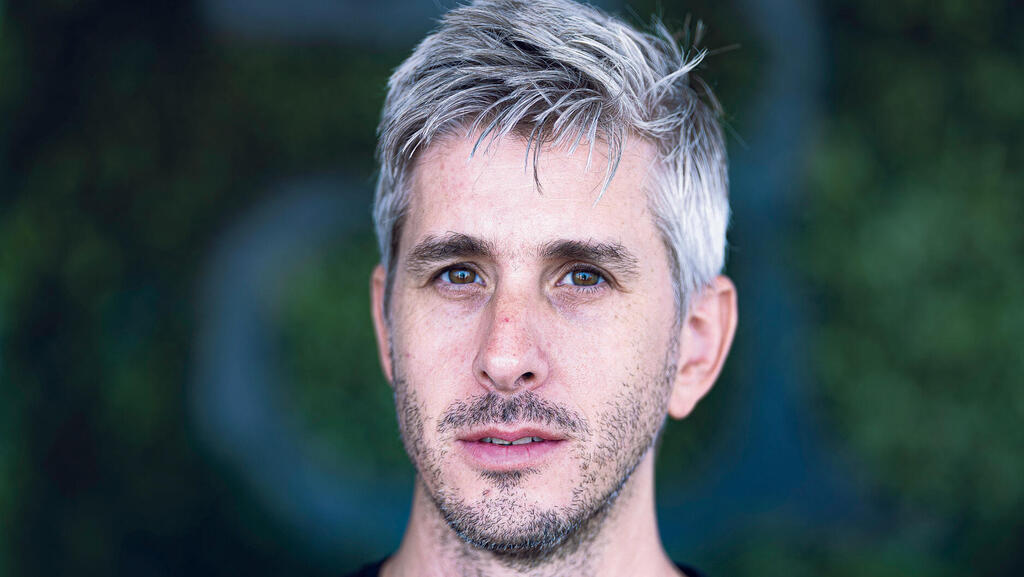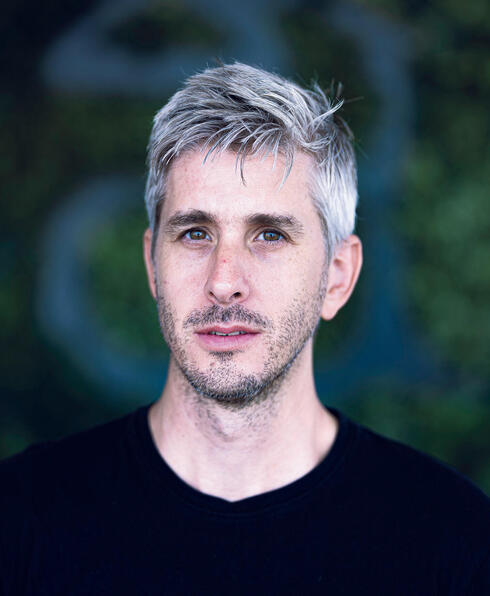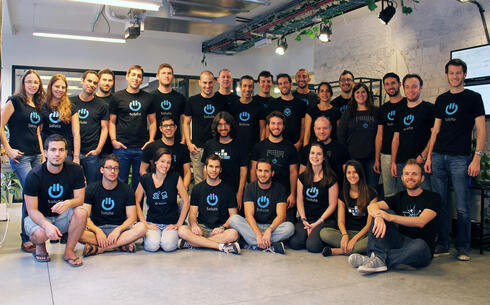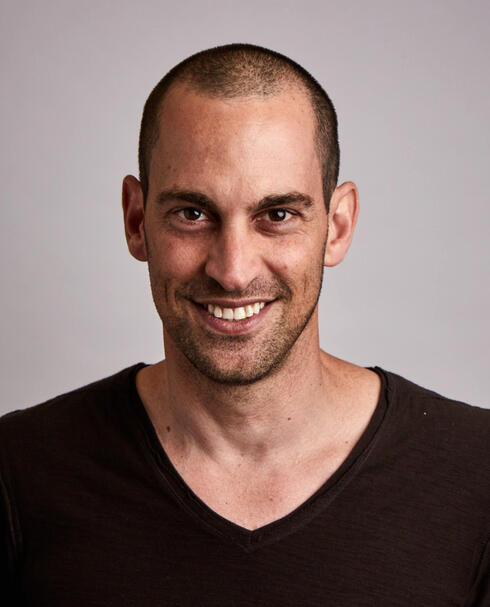
The circle of life: Soluto died, but Israeli high-tech feeds off it
A rare peek behind the scenes of the high-tech crisis. The day after the sudden announcement of its closure, Calcalist visited Soluto’s offices and talked to its worried employees and heartbroken founder, as well as the other founder, who left the company a long time ago, and believes that what’s happening now is the best thing for both the workers and Israeli high-tech
When I arrived this Monday at Soluto’s offices on Rothschild Boulevard in Tel Aviv, I was held up for a moment as I tried to understand where the front door was. "The entrance is from here," one of the workers pointed out, "but soon it won't be used anymore."
It's around 1pm, and the company's employees are leaving the offices for lunch at one of the nearby restaurants. Most of them are young, under thirty years old, with a fondness for scooters and sporting hipster looks, and they could easily serve as the poster boys and girls of Israeli high-tech.
The lobby area ironically looks much less hip, as it is still dedicated to Soloto’s grand exit in 2013, when it was sold to American tech giant Asurion for $130 million - a huge amount by any measure, especially in those days. The wall at the entrance looks like a wall of fame for the two founders, Ishay Green and Tomer Dvir (and also serves as evidence that print is not dead, it just shrivills up on walls): as hanging on it are framed photographs of articles in the press from back then, with headlines like "Soluto makes an exit" or "Asurion which purchased Soluto plans to acquire more startups in Israel." However, just the day before my visit, the very same Asurion announced the immediate closure of Soluto, which since the purchase had served as its development center, and the total layoff of all 120 of its employees.
"It's hard because this was our home," one of the employees tells me, who even after being fired make sure to behave in accordance with the tough high-tech code and refuse to be quoted by name without permission. "It's an amazing company, and what mostly hurts is giving up an amazing social circle. But that's okay, we understand the situation in the market."
What exactly is the situation?
"The situation is that we are part of a much larger organization. Although we were a major business part of it, and our product is amazing, this is the decision that was made. The parent company changed the business direction a little and is making an organizational change in accordance with the situation in the world and in the technology industry. It also laid off employees in the United States before they came to us. The layoffs there actually heralded what would happen here. Laying us off is another consequence of the decision to deal with the economic situation."
Are you stressed from looking for a job in a market that is adapting to the new situation?
"It may sound exaggerated, but we are confident because the outside world knows what we are worth. The fact that we are from Soluto will help us. The company has an amazing reputation."
"It won't be easy, and it's not fun to begin the process of looking for a new job, but I think we'll manage," says another employee.
"I don't worry about our employees, they will find work"
Asurion's reorganization included the layoffs of about 1,000 workers in the United States, out of a huge number of about 23,000 in total. In this respect, Soluto is but a ripple in the ocean. Its closure, say those close to the company, was made out of a cold consideration of saving expenses and neutralizing the headaches associated with maintaining a separate company in a foreign country, including the tax planning, supplier contracts and administrative costs this draws. "At Asurion they came to the conclusion that there is no choice and that the professional duty at the moment is to ensure survival," they say.
But from the perspective of the startup nation, the closing of Soluto is a considerable drama steeped in a lot of symbolism: a company that started with huge promise, won a prestigious award at the very beginning of its run, attracted high-quality investors, quickly completed a handsome exit, established itself as a development center of an international giant - and even as a juicy trivia detail It was managed for brief time by the person who later became the Prime Minister of Israel, Naftali Bennett.
"From the point of view of the Israeli economy, we lost the activity of an American company here," says a source familiar with the company's operations. "As far as the high-tech industry is concerned, this is the first sign of a phenomenon that we will soon see: international companies that need to downsize, and Israeli development centers that will absorb the hits."
"On the one hand, it's very sad, and somewhere, in an ideal world, you expect it to go on forever. On the other hand, rationally, you understand that there is not much to be done and that this is the reality," says founder Tomer Dvir. "It's very sad, but every story of a high-tech company stands on its own, and you can't conclude anything from it about another company, or about the high-tech industry here in general. The market here was inflated and is balancing a bit now. And a closure like what happened here is a relatively extreme thing, and I don't know if it will happen to others as well."
Dvir is married to Noa Maiman, daughter of businessman Yossi Maiman, who died in 2021, and the two have two children. He holds a senior position in Asurion, but for the past year and a half he has been on unpaid leave and living with his family on a yacht, which is currently docked in Florida. "It's my first time off after 20 years during which I didn’t rest," he says. "I have been working continuously since the day I completed my army service and founded the company, and we decided that the children are at the right age for an extended family vacation."
Your employees have all been laid off. Will they manage?
"I'm not worried about their ability to find a job. The screening processes in Soluto were tight and those who go looking in the job market will be snatched up quickly. The best are always in short supply. My only wish for them is to find a job out there with the standards they had at Soluto."
"On Sunday morning, we gathered the employees for an intimate conversation," said Merav Oren, CEO of Soluto. "Layoffs had already started a week earlier in the United States and the employees wanted to know how it would affect us. John Leonard of Asurion spoke at the meeting about the strategic change in the company and the need to focus on its more profitable channels."
I am guessing that's not what bothered the employees?
"That's why I tried to get to the actual news quickly in the conversation. I told the employees that I was proud of everything we did together, and that it wouldn't go away. There was crying, anger, frustration - and that's fine. I also shed a tear, I was emotional. But I held myself together in order to be there for everyone else."
"I don't feel anything. What is there to feel?"
One person who is much less sentimental about the closure is Ishay Green, who founded Soluto together with Dvir and was his partner until the exit in 2013. Green (43) is far more expressive than is customary in the industry. He participated in the docu-reality series "Connected", he produces independent theater plays of his partner, the director and playwright Dafna Rubinstein, and he is also a serial entrepreneur, founding four startups. From his point of view, not only is the closing of Soluto not sad, but "the layoffs are a blessing."
How do you feel the day after the closing of Soluto?
"I don't feel anything, what should I feel? This is another company. It was established 15 years ago, and I haven't been there since 2012."
You dreamed and gave birth to Soloto.
"I have no feelings, no pain. It's just work, not the most important thing in life. Companies may speak in the language of 'welcome to the family', but it's not a family, it's work. Yesterday I was busy with our show in Edinburgh."
Why doesn't Asurion want Soluto?
"Because all the powerful forces left Soluto after working there for more than a decade. Even Tomer Dvir, who was my founding partner and CEO, is already 40 years old. After 15 years is he allowed to change jobs? As soon as the entrepreneurial forces leave, the group becomes a technological group. Maybe with good programmers, but also average ones that cannot initiate and create new things. Ben Horowitz wrote in his book that every technology becomes obsolete after a decade, and either you rewrite it or you die."
Is that what happened to Soluto?
"Soluto apparently got old and failed to initiate new things. But that's okay, because companies that employ 2,000 people were born from Soluto."
According to that way of thinking, its closure is good news.
"The economic value of closing Soluto is positive. It closes at a good time because the strong minds that came out of it are already driving the economy in other startups. It is a cornerstone, those who left it will continue to drive the economy from other places that need programmers. After all, Soluto itself was born from the development center of McAfee, which I left with two other people to establish it. This is the Israeli ecosystem, this is the food chain. The animal that dies in the field, after the lions eat its meat, its body becomes the fertilizer on which trees grow. So now the lions are eating Soluto's meat.”
Who are the lions in this parable?
"There are about 60 unicorns in Israel today, and they are real. All these unicorns need programmers, and those fired from Soluto will work for them. So everything is good. They have undergone excellent training, and I am happy that now they are no longer working for Asurion, but are returning to the Israeli ecosystem. I have no interest in great programmers working at Asurion. What do I care about Asurion? Let them work for Israeli companies. We sold the company, Asurion made hundreds of millions, if not billions, from Soluto's software, everyone benefited. Thank you very much. Let the workers go."
In today's ecosystem it may not be easy to find a job.
"Those who are lazy and are bad programmers will probably find it harder to find a job. Development centers that grow to 120 people accumulate a layer of employees who didn't really work and who are not really interested. But those who know how to program and have a passion will find a job within ten minutes. Do you know how many good companies there are here? They all need great programmers and it won't end in the next 20 years. Good programmers are a very rare commodity. With all due respect, this is not a factory in Yerucham that closed and now the workers have no other option."
"Want to invent? At Asurion they will tell you to 'go fish!'"
Soluto was founded by Dvir and Green, a pair of young nerds from Netanya, who found themselves repeatedly handling computer problems of family members and friends. Their first product was designed to allow people to identify faults on their computer, and brought them great fame in a world where everyone hated their computers. They won first place in the TechCrunch Disrupt competition held in 2010, and millions of users all over the world downloaded Soluto's software to their computers. The next step was to develop a product that would enable remote treatment of problematic computers, and also smartphones. Once it worked, Asurion showed up with a check for $130 million. Asurion's core business was cell phone insurance and it was the main provider of this service to the major cell phone companies in the United States. Soluto's technology fit like a glove, and from that moment Soluto served as their center of innovation.
In Green's view, this is the stage when a company loses its "mojo". "Without the entrepreneurs, everything falls apart and rots. A company needs inventiveness," he says.
And in the development center they don't invent?
"To invent means that something will happen between someone's ears out of nowhere, and then they will have the entrepreneurial power to obtain budgets and convince the company to run it. Now try explaining to Asurion that you want to make the next version of the product, and that it will take a year-and-a-half and cost $20 million. They will say 'go fish!’ Entrepreneurial power is the key. Now ironSource, for example, has a very strong entrepreneurial power. Another example is Wix, but if the founders or the leading team leave the company - within two years the whole company falls apart."
You gave an example of two unicorns, when today it is clear that unicorns are part of the problem of bubbles in high-tech, and they are now having difficulty justifying an unreasonable value.
"It's jealousy and narrow-mindedness. What does it matter if they're worth $10 billion or just $2 billion? It's still billions. Big f-ing deal. And they still have $200 million in their account, which is enough to support a lot of people. It's still infinite. If (cyber company) Wiz is not worth $6 billion, but a billion, what difference does it make? In the high-tech industry, it doesn't matter. Likewise, if Wix isn't actually worth $15 billion. The share value of a company like monday, for example, is only part of the picture, because in the long run it will continue to grow and recruit employees”.
You are very non-mainstream.
"I understand that you wanted to do an 'Oh, it's sad in high-tech' article, everyone does that. But I say that everything is really good. Soluto is an excellent example of a story of entrepreneurs who left it and founded 20 startups. Therefore, it's time for it to close and join the Israeli ecosystem. High-tech will only get stronger, because companies will spring up like mushrooms after the rain. The closing of a development center of a large company is a blessing for Israel."
Any development center?
"No. The closing of Intel, for example, would not be good, because it is an expert in maintaining development for years. Microsoft or Google also know how to maintain huge development centers all over the world and maintain innovation. Asurion is different."
So do you estimate that more development centers will close?
"Yes. Almost every American brand that has a development group here and does not have something very creative or the maintenance of a very important system will undergo cuts or close. And as I said, this is not a bad thing, the employees return to an ecosystem that is hungry for engineering, for quality, and for product managers."
And you are not angry with Asurion?
"No, I congratulate them. Thank you very much. They gave me money, they contributed to high-tech here, and they also earned billions from the deal. And next time, when there is something interesting in Israel, they will buy a company."
Is the ecosystem you are talking about stable now?
"The ecosystem is stabilizing, the programmers in my current company are no longer looking for work. Everything has calmed down, it has become quiet, you can work. And don't worry, everyone is making money, there are still billions, and the demand for workers will not end. The only ones who lose are the working class. Those who are at the bottom of the chain, they suffer a lot more from the rising cost of living and are not in the party of opportunities. My heart really aches for them."
Aren't you speaking out of enmity to a company which split with you?
"The company didn't fire me, I left when Tomer, my partner and CEO, asked me to leave. At first you are offended, but then it doesn't really matter."
"Like in 'The Lion King', the circle of life will close"
You speak in praise of the Israeli industry, but over the last two years the unicorns became a symbol of extravagance, hedonism bordering on decadence.
"To make the entire ecosystem wasteful is a gross generalization. I haven't seen crazy waste in companies, and I know a lot of entrepreneurs. Rapyd organized a party because someone there was on a high. It happens. It's a temporary celebration. It doesn't make all high-tech wasteful and corrupt, or make someone delusional who doesn't understand what money is. Monday spends billions advertising on Facebook, so what is the big deal about a billboard on the Ayalon expressway? It's marketing's pocket money."
Related articles:
And will any of these unicorns become the next Check Point?
"Each unicorn is a small Check Point, and it doesn't matter if it is sold. More and more unicorns will survive until the Check Point stage. And as Yitzchak Sadeh said, 'Sports for thousands, not for champions.' It is better to have lots of companies from which unicorns will grow, be bought or closed, and from which more companies will be born. Innovation will not end."
You talk about the situation in a way that may upset quite a few people.
"Because they don't look ahead. In the short term, a few people won't have a job, in the long term, the business environment will strengthen. In a year or two, they'll see that I'm right. Many companies will overcome this small crisis, and in the end we'll reach the goal of a million high-tech workers. Remember the Lion King? It's the circle of life. The king's brother kills him, and Simba the cub runs away. But then he grows up and becomes king again and kicks out the evil king. This circle of growth is good. It's not like the textile companies moving to China and then the industry ends."
How do you look so coldly at masses of layoffs in the industry?
"The industry is an animal with infinite hunger. As much as you feed it, it will eat. The unicorns have a hunger for people, they have raised a lot of money and some of them are money machines that do not stop. Inflation, stagflation, any macroeconomic term you throw at it will not change the fact that they are hungry and capable of taking in a lot of people. And like I said, this body of Soluto is fertilizer for the industry. I feel sorry for the pressure and fear of people, but they are going on an adventure, and in the end they will be better off too."


